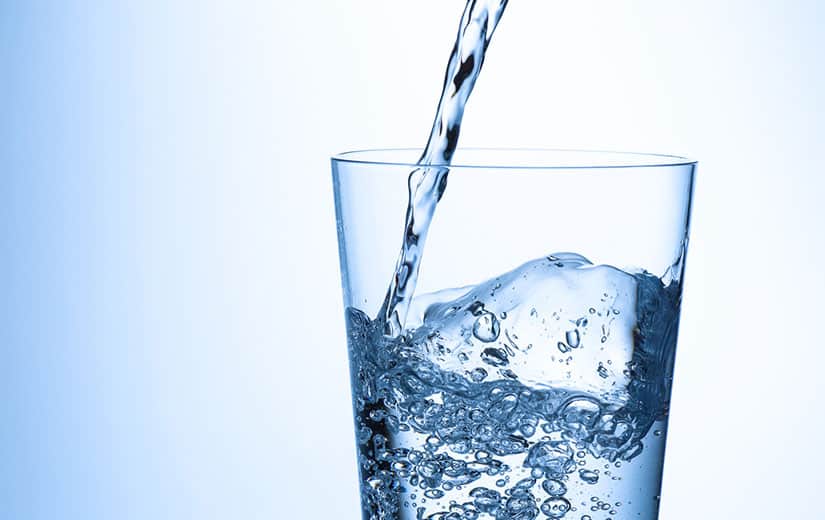If you are a victim of repeated acid reflux or gastroesophageal reflux, your doctor should have you undergo an examination. This will determine whether or not you have a hiatal hernia. This pathology then corresponds to a bad positioning of the stomach. In some cases, surgery appears necessary. However, there are several solutions to naturally treat a hiatal hernia. Discover all the right things to do as well as natural remedies and treatments to fight against heartburn and acid reflux. Everything you need to know to soothe the pain and overcome a hiatal hernia.
Summary
Hiatal hernia : What is that ?
Hiatal hernia is a lesion of the digestive tract whose causes are not clearly defined. However, GERD (gastroesophageal reflux disease) is known to be the main symptom. There are two kinds of hiatal hernia: rolling or sliding. A distinction is also made between type 3 hiatal hernia (or mixed, that is to say with rolling and sliding), as well as stage 4 hiatal hernia. In the latter case, this corresponds to a hernia of the stomach in whole and other viscera can be affected (spleen, pancreas, intestines, etc.).
More specifically, hiatal hernia refers to the passage of a portion of the stomach through the esophageal orifice of the diaphragm. This passage occurs when the means of fixing the stomach and the lower esophagus fail.
Generally, the elderly are the most affected by hiatal hernia. Moreover, in the elderly, the hernia can be larger and mixed (rolling and sliding). However, it should be noted that the true prevalence of hiatal hernias is complicated to determine since most patients do not experience any symptoms.
The causes
Depending on the type of hiatal hernia, there are different causes:
- during a sliding hernia, in 90% of cases there is an increase in pressure in the abdomen, obesity or congenital shortening of the esophagus;
- in the presence of a rolling hernia, in 10% of cases there is a congenital defect of the hiatus of the diaphragm. It could be trauma.
On the other hand, there are risk factors for hiatal hernia:
- GERD;
- age;
- significant weight loss with loss of muscle tone. This then causes a defect in the attachment of the esophagus.
Symptoms
The most suggestive symptom of hiatal hernia is gastroesophageal reflux. However, other signs should alert:
- pain when swallowing. This can raise fears of esophagitis;
- localized pain in the pit of the stomach;
- slight anemia accompanied by pallor and fatigue due to minor digestive bleeding;
- phlebitis (venous thrombosis of the lower limbs);
- vomiting blood.
Namely: the doctor will look for a hiatal hernia when the patient suffers from one of the following pathologies: cholelithiasis, ulcers, gastritis, colonic diverticulosis.
Natural treatments for a hiatal hernia
Diet rules
To prevent the risk of hiatal hernia, certain rules of hygiene and diet should be adopted. Among them :
- lose weight if overweight;
- split meals into several light food intakes. It is absolutely necessary to avoid abundant meals;
- do not lie down immediately after eating. Better to avoid the siesta after lunch. And wait a while after dinner for the evening set;
- also ban slow-digesting foods such as fatty dishes;
- finally, be careful not to consume the following products: soft drinks, spices, coffee, tobacco, fats, alcohol, salad dressing, acidic fruits.
Favorite foods
Fiber-rich foods benefit the entire digestive system. Consider consuming cereals and pasta, but also peas, lentils, beans, artichokes, broccoli, raspberries, as well as green vegetables such as spinach, arugula, kale…
And also drink water. This is the simplest remedy, but it is particularly effective. Drinking throughout the day helps relieve heartburn symptoms.
Good everyday gestures
In everyday life, it is important to take the right steps to prevent hiatal hernia:
- do not wear clothes that are too tight or tight (girdles, corsets, belts);
- raise the head of the bed or stack two pillows;
- avoid leaning too far forward.
Licorice
The use of licorice roots can treat ulcers of the esophagus as well as stomach. Indeed, licorice protects against gastric juice.
Plants
Some plants like marshmallow, mallow, elm, mullein, nopal and plantain have a high pectin and mucilage content. Therefore, they are traditionally used to soothe irritations of the lining of the digestive system. And they also protect the tissues from acid attacks.
Manage stress
Stress would play a role in the occurrence of heartburn. It is therefore necessary to manage it as well as possible to avoid hiatal hernia.
Yoga, meditation, sophrology, practicing a sport… There are several ways to relax and get rid of anxiety.
chewing food to produce saliva
Chewing food stimulates the production of saliva, which helps calm acid reflux.
You can snack on raw vegetables such as carrots, celery sticks or cucumber slices.
Probiotics
Fermented foods keep the digestive system healthy and promote a better pH balance in the stomach.
Ginger
Ginger has long been used as a natural remedy for digestive issues. You can also use it to speed up the breakdown of food in the intestine.
turmeric
This food has many benefits, especially to prevent the risk of hiatal hernia. Rich in antioxidants, it helps heal the intestine and relieves stomach irritation.
aloe vera juice
Naturally alkalizing, aloe vera juice is a great natural treatment to fight against hiatal hernia.
More natural treatments:
- 7 natural treatments for warts
- 7 Natural Acne Treatments
- 7 Natural Psoriasis Treatments
- 7 Natural Lice Treatments
- 3 natural treatments for scabies
- 11 Natural Constipation Treatments
- 9 natural treatments for angina
- 13 Natural Asthma Treatments
- 7 natural treatments for anemia
- 8 natural treatments for anxiety
- 9 treatments for heartburn
- 11 natural treatments for canker sores
- natural treatments for paronychia
- 7 natural treatments for cystitis
- 11 Natural Gout Treatments
- 13 natural treatments for osteoarthritis of the knee
- 7 Natural Sinusitis Treatments
- 6 natural treatments for osteoporosis
- 10 natural treatments for cold sores
- natural treatments for urinary tract infection
- 9 natural treatments to reduce the effects of menopause
- 9 Natural Osteoarthritis Treatments
- 9 natural treatments for tinnitus
- 11 natural treatments for hemorrhoids
- natural treatments for bronchitis
- natural treatments for seborrheic dermatitis
- Helicobacter pylori: natural treatments
- Natural treatments for bloating
- Natural Burn Treatments
- Natural treatments for balanitis
- Natural treatments for conjunctivitis
- Natural treatments for hot flashes
- Natural treatments for hypertension
- Natural Inner Ear Crystal Treatments




